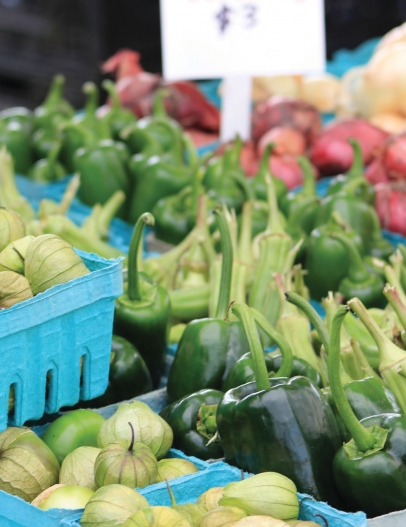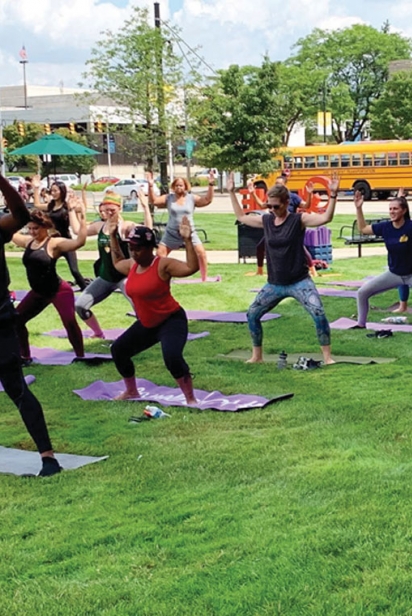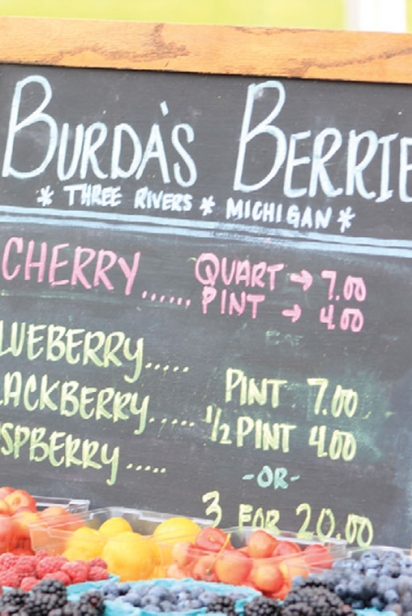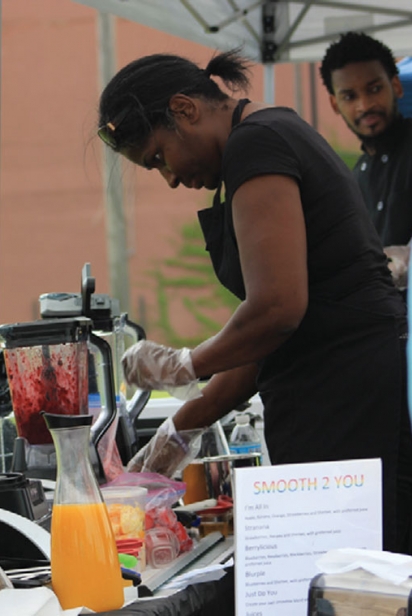Wayne State Farmers Market Skips a Year
‘We are ready for 2020 to be over’
Going into 2020, the Wayne State University Farmers Market had great expectations. With a highly visible location on Woodward at Warren, an interesting mix of vendors and more community services than ever, it was shaping up to be a big year.
“This would have been our third year [on Woodward] and we were excited because we had some new niche vendors,” says Market Manager Heather Ladanyi, Wayne’s manager of the Division of Kinesiology, Health and Sports Studies and a researcher in the Center for Health and Community Impact. “So, we were really amped up.“
Instead, chalk up another loss to the COVID pandemic. A plan to open late for an abbreviated fall season was not to be, due to university policy in response to the pandemic.
“Currently, the university is not allowing any faculty, staff or students to participate in any large public gatherings,” Ladanyi says. “Without students and faculty on campus, we really can’t provide [vendors] with the market they need.”
The market began in 2008 on Cass Avenue under the leadership of urban planning professor Kami Pothukuchi. It was part of a larger response to food insecurity in the city which, at the time, included several campus gardens.
The market went weekly in 2009. Since then, oversight has transitioned to the Center for Health and Community Impact and the market has moved. “We decided it would be beneficial to move the market to a more community-friendly location,”
Ladanyi says. In addition to fresh produce, specialty foods and food trucks, free health-oriented activities were added, such as yoga, blood-pressure and body-fat checks and mental-health assessments.
The market is adjacent to the campus welcome center and patrons come from the WSU community as well as the surrounding Midtown area. “We saw that people really came to our market during their lunch hour and wanted fresh, prepared foods,” Ladanyi says. “We wanted to utilize the food trucks to draw people into the market.” The idea was that they’d grab lunch and take home fresh goods to make a healthy dinner.
The market can accommodate 22 vendors. “We really try to be selective as to who we grant the spaces to,” Ladanyi says. “We try to go with historical vendors first and foremost and we try to avoid competition, so [for example] we wouldn’t have two bakers.”
The anchor farmer has been Cinzori Farms, a certified organic farm in southern Michigan. New last year was CWO Farms of Detroit. “He sold out every week,” Ladanyi says.
Central Detroit Christian, a faith-based nonprofit community-development corporation, was a vendor the last two years. CDC has a farm and an aquaponics operation, where greens, herbs and mushrooms are grown indoors.
“Wayne State was the biggest for sales for us,” says Aquaponics Manager Cathy Bindschadler. When Wayne and another big market, Keep Growing Detroit shut down, “we definitely had to change our course of action. We had already been planning to do some CSAs this year and mostly markets.”
A vendor survey taken in May sought to learn what the vendors would do if the WSU market did not open. At that time, many were unsure. “Everyone was very understanding of us needing to delay,” Ladanyi says. “Everyone’s been understanding that we can’t control this.”
Since then, some vendors have teamed up with eastern Market for Tuesday drive-by markets. Some were able to migrate to new neighborhood farmers’ markets. “We did share our vendor list,” Ladanyi says. “We love our vendors and we didn’t want to leave.”
CDC changed over to a community-supported agriculture (CSA) harvest subscription model, where customers pay a set price for market boxes of whatever happens to be in season. “It’s a totally different plan of attack,” Bindschadler says. Remarkably, the CSA has actually done better than the markets.
Sylvia Moore, proprietor of Smooth 2 You, credits the Wayne State community for getting her started when she was an employee of the university. Her coworkers were so taken with her smoothies that they convinced her she needed to go into business. In 2018 she bought a trailer, set up a business entity and launched.
“It was off the chain,” she says. She quickly established a fan base that wanted to enjoy her no-ice, real-fruit smoothies more than once a week. In February 2019, she opened a store at Lakeside Mall, quitting her job at WSU. “I took the big plunge.”
But as the winter of 2020 began, things slowed down at the mall. Then the pandemic hit. “I tried to survive it,” she says. She closed her store in January and now has a new job.
But she’s considering her options, including a return to the WSU market next year. “There’s nothing like being out in the crowd and the fast pace,” she says
Bindschadler also hopes to be back next year. “We really miss the markets,” she says. “We miss the customers and the other farmers.”
education.wayne.edu/health-community-impact/farmers-market and facebook.com/WSUFarmersMarketcentraldetroitchristian.org







